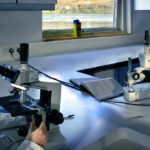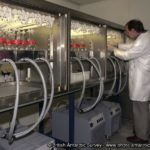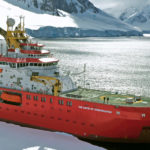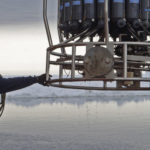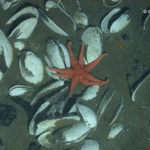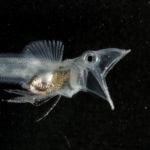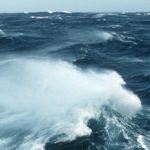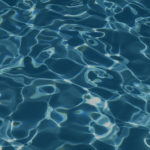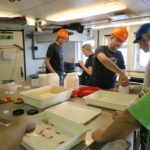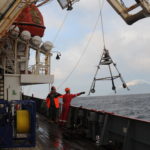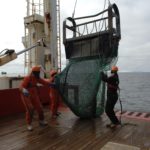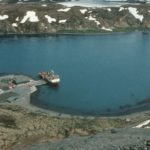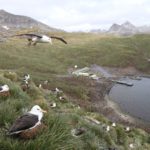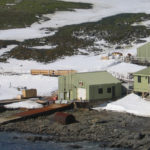CONSEC
Research, Conservation and Leadership in Southern Ocean Ecosystems
- Start date
- 1 April, 2023
- End date
- 1 April, 2033
CONSEC is addressing the challenge to understand the links between the biodiversity, structure and function of Southern Ocean ecosystems and the impacts of rapid environmental changes to improve scientific knowledge and inform conservation and management policy.
BACKGROUND
The Southern Ocean is undergoing climate and societal related changes that are affecting its species, ecosystems and ecosystem services. Further rapid changes are expected in the coming decades driven by multiple physical and chemical processes (e.g., warming, ice loss, changing winds, reduced pH) and direct human impacts (e.g., fisheries and tourism). Changes are clearly taking place, but the drivers, mechanisms, and implications for marine ecosystems and the services they provide are poorly understood. Understanding the combined effects of natural and human-induced environmental stressors on biodiversity, biological processes and biogeochemical cycles is crucial for developing projections of the future state of ecosystems across the Southern Ocean and to inform their conservation and management.
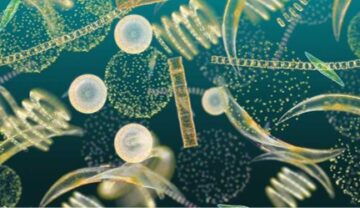
The structure of marine ecosystems is a product of both environmental factors and biological interactions. Environmentally, the Southern Ocean experiences high levels of seasonality and is subject to global climatic cycles that propagate through its ecosystems at different rates. Species must withstand substantial fluctuations in temperature, primary productivity, atmospheric winds and ocean currents and, in some places, sea ice. Biologically, polar ecosystems are characterised by multi-scale interactions of organisms operating at different trophic levels. These ecosystems contain a wide range of food web structures, from short efficient food chains to complex networks. These are influenced by the varied and specialised life cycles of polar organisms which must incorporate short productive seasons and longer overwintering periods. Together, environmental and biological factors result in Southern Ocean ecosystems being highly spatially and temporally variable across multiple scales, all of which are critical for understanding how ecosystem structure is maintained.
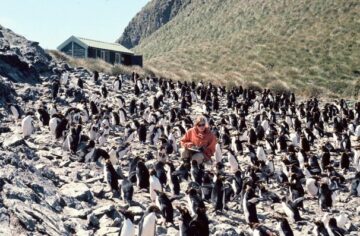
Polar ecosystems also carry out globally important biogeochemical functions. Many nutrients essential for global marine productivity are exported from the polar regions and this process is modulated by the biological activity of polar marine species. Some Southern Ocean regions also contain globally important carbon pumps. In these regions, carbon fixed from the atmosphere is rapidly transported to deep ocean depths where it remains for decades to centuries. The marine ecosystem plays a fundamental role in this carbon transport process. However, human-induced environmental stressors (e.g., ocean warming, ocean acidification, plastic and chemical pollution) are threatening how these processes operate. Continuing to refine our parameterisations of these processes and assessing the impacts of different types of stressors is fundamental to understanding the operation of the Earth system. It also emphasises the global importance of conserving polar marine ecosystems.
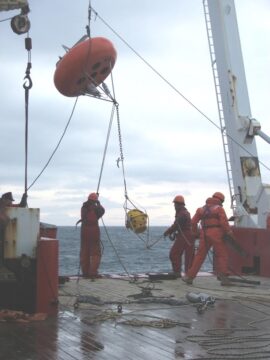
Environmental change can further result in non-linear responses that may be manifested as the inability of individuals to complete their life cycles or the restructuring and potential collapse of food webs following declines in the abundance of a key species. These responses may lead to abrupt reconfigurations of ecosystems across large areas. Such rapid changes in state, termed “tipping points”, may be hidden by natural system variability, but may also be too fast for many organisms to adapt to successfully, cascading to produce potentially catastrophic consequences for some species. For polar organisms, the shift poleward of suitable habitat will lead to a contraction of true polar ecosystems, but such changes, involving multiple physical and chemical processes. Discriminating these non-linear responses from natural variability can only be achieved through the continuous monitoring of these systems.
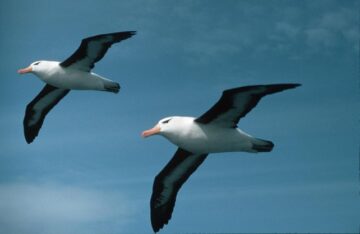
Conservation of polar biodiversity and ecosystems must take into account the changing environment and consider how species respond to change. A further factor is the impact of the harvesting of natural resources in the Southern Ocean. Harvesting of krill and fish is regulated through the Commission for the Conservation of Antarctic Marine Living Resources (CCAMLR), which, through its ecosystem approach to management, has a remit to minimise the impact of harvesting on the wider ecosystem. Further conservation measures are legislated through bodies such as the Agreement on the Conservation of Albatross & Petrels (ACAP) and the International Whaling Commission (IWC). The Antarctic Treaty Consultative Meeting (ATCM) produces regulations and guidelines for the management of the Antarctic Treaty area, with advice from the Scientific Committee for Antarctic Research (SCAR). It is in the national interest of the UK to drive the agenda within each of these bodies and this can only be achieved through the provision of the best available scientific evidence. CONSEC provides participants to all of these regulatory and advisory bodies, including all of the CCAMLR working groups. Our participation ensures that the most up to date ecosystems science remains a key part of the decision making process.
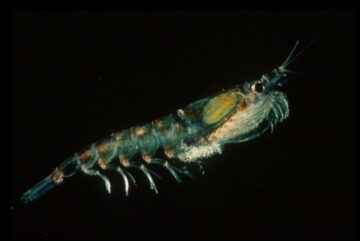
Much of the geographic focus of UK marine science is on the south-west Atlantic sector of the Southern Ocean. This reflects the importance of this region both ecologically and geopolitically, as well as its accessibility. The south-west Atlantic sector is one of the most productive regions of the Southern Ocean, driven by the supply of limiting micronutrients from the Antarctic Peninsula and island land masses such as the South Orkneys and South Georgia. As a result, this region contains much of the circumpolar population of Antarctic krill, and in turn, large populations of krill-feeding higher predators, including penguins, albatrosses, petrels, seals and baleen whales. It is also the geographic focus of the growing krill fishery. Both the South Orkneys / Antarctic Peninsula region and South Georgia and the South Sandwich Islands are UK Overseas Territories and host Marine Protected Areas (MPAs). There are important fisheries for krill, toothfish and icefish managed by the Government of South Georgia and the South Sandwich Islands. Through CONSEC, BAS science is the primary source of scientific evidence driving conservation and management of marine resources and wildlife within these regions.
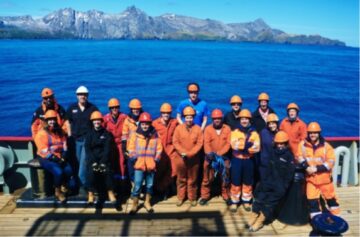
CONSEC aims to identify suitable conservation and management measures based on long-term sustained observations and analysis across multiple trophic levels and adequate spatial scales.
The CONSEC programme focusses on regional ecosystems in the south-west Atlantic sector of the Southern Ocean, including the islands of South Georgia and the South Orkneys, where it undertakes long-term monitoring and targeted studies to provide information on how ecosystems are structured considering biodiversity, the life cycles of key species, food-webs and population dynamics. It also considers crucial processes such as predator-prey interactions and the operation of the carbon pump. Environmental stressors, including ocean warming, ocean acidification and plastic and chemical pollution, impact all these aspects of the ecosystem and are considered both in isolation and combined. CONSEC is also developing models at regional and circumpolar scales to generate projections and provide clear information and recommendations for conservation and management decision-making.
CONSEC will deliver its aims through mutually interdependent worpackages and tools:-
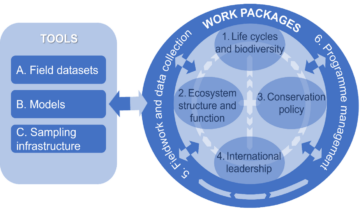
The four principal science workpackages are:-
WP1 Quantifying biodiversity, life cycles and food-webs (WP leader: Norman Ratcliffe)
WP2 Determining ecosystem structure and their biogeochemical function (WP leader: Simeon Hill)
WP3 Driving policy in conservation and sustainability in the Southern Ocean (WP leaders: Rachel Cavanagh and Susie Grant)
WP4 Providing international leadership in polar marine ecosystem research (WP leader: Nadine Johnston)
The above are supported and overseen by two further work packages, dealing with collection of field samples and data and programme management, collectively managed by the Ecosystems Executive Group (EEG):
WP5 Managing fieldwork and securing the collection of field data (EEG)
WP6 Programme management (EEG)
These work packages incorporate a number of Tools in order to meet their objectives, which can be summarised as follows:
Tool A Field datasets of sustained observations
Tool B Biophysical and ecosystem models
Tool C Sample collection infrastructure
The individual aims of the workpackages are as follows
WP1 Quantifying life cycles, food-webs and biodiversity: to quantifyithe ecological and biological processes that affect the life histories and life cycles of key species in Southern Ocean ecosystems, and how these are affected by changes in the environment, including climate, pollutants, fisheries and other human stressors. This is fundamental to modelling population dynamics and food webs both now and into the future, as well as informing their conservation and management. Our focus is on Antarctic krill, other zooplankton (copepods, salps, pteropods, euphausiids), fish (myctophids, nototheniids) and higher predators (penguins, albatrosses, petrels, seal, whales), particularly species that are abundant and therefore are major prey or consumers, and others that are declining, or listed as threatened by IUCN (International Union for Conservation of Nature) and/or for which there is particular concern under international agreements (e.g. CCAMLR, ACAP, IWC; see below)
WP2 Determining ecosystem structure and their biogeochemical function: to understand the distribution of key species on seasonal and annual timescales, which is essential for considering how Southern Ocean ecosystems operate. Observations and biophysical models enable us to determine the influences of physical oceanographic and sea ice processes on the distributions of pelagic species such as Antarctic krill, while monitoring and habitat modelling of land-based predators allows us to generate quantified analyses of seasonal and interannual changes in their habitat. Together with knowledge of species-specific physiological optima and tolerance limits that affect the resilience of species to future environmental change , we can use these outputs to project potential changes in the distribution of key species, and hence to the Southern Ocean ecosystem, under varying environmental stressors. This is critical information for the development of conservation and sustainable management policies
WP3 Driving policy in conservation and sustainability in the Southern Ocean: to facilitate the provision of scientific advice to conservation and management bodies such as CCAMLR, ACAP and IWC. CONSEC scientists engage at a high level with these bodies, including preparing for meetings, writing papers and reviewing documents submitted by other members, contributing data and advice, and leading and engaging in extensive intersessional work programmes.
WP4 Providing international leadership in polar marine ecosystem research: to ensure the effectiveness of our research in terms of both increasing understanding of polar ecosystem process and influencing the agenda on ecosystem conservation and management. CONSEC scientists maintain both lead and contributory roles in numerous international programmes and initiatives. Collectively these efforts place us at the forefront of Southern Ocean and global ocean research, connecting this research with decision-makers and policy at both the Southern Ocean and global scale, and promoting Ecosystems and BAS science on the world stage.
WP5: Fieldwork, collection and analysis of samples and data: to carry out a wide range of sustained field and data collection activities that combine fieldwork on ships, research bases, autonomous data collection (i.e., oceanic moorings, gliders and sailbuoys, aerial drones and wildlife telemetry) and the collation of remote-sensing data.
WP6: Programme management: to coordinate and manage the programme to ensure it delivers its extensive remit and responsibilities to represent UK interests in Southern Ocean ecosystems, conservation and management in the international arena.
The full programme document can be downloaded here
https://www.bas.ac.uk/wp-content/uploads/2023/07/CONSEC-Ecosystems-NC-ALI-Programme-1.pdf
